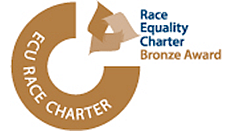Sign up for updates
Interested in studying at the University of Hertfordshire and want to sign up to our mailing list to learn more about our facilities, living in the UK and student life? Use the form below and our team will also keep you informed of key updates such as events near you, applications opening and more!
Professional Doctorate in Education
About the course
The Doctorate in Education (EdD) is designed to support the professional learning and development of practitioners in the fields of education and training and to bring benefits to the organisations and professions in which they work. The EdD is a research-based programme, focusing on the development of professional practice. The cohort-based programme seeks to empower professionals to research and innovate at doctoral level to address issues or problems of policy or practice directly relevant to their own professional interests and institutional concerns.
How to apply
The deadline for applications is midnight Sunday 1st June 2025 (start date 1st October 2025). Applications are sent to doctoralcollegeadmissions@herts.ac.uk. Late applications may be accepted at the discretion of the Programme Director; however, requests must be made directly to Dr Rowena Senior - r.senior@herts.ac.uk by 1st June 2025.
There are three key actions to engage with before making an application:
- Discuss your proposed research with Dr Rowena Senior - r.senior@herts.ac.uk, to establish that it is appropriate for this award. Please contact Rowena directly to arrange a short meeting.
- Attend a virtual Open Evening and a proposal writing workshop. These will be held on the dates/times below. Please contact r.senior@herts.ac.uk for a link to attend any of these sessions.
Open evening - Thursday 3rd April 2025 6-7pm
Proposal writing workshops – Thursday 10th April 2025 6-7pm or Tuesday 29th April 2025 1-2pm
- Gather the documents listed below ready to make your application. To make an application documents must be submitted to doctoralcollegeadmissions@herts.ac.uk by the deadline above.
- A completed application form that can be downloaded from the link here.
- A research proposal with a title, (with separate bibliography) describing the form and methodology that your research will take (2000 words)
- Copies of your qualifications (we will require an honours degree, normally at least 2:1 or above, in an appropriate discipline)
- Transcripts
- English language qualifications (if applicable). International students from countries where English is not the official first language should have a minimum IELTS score of 6.5 or equivalent.
- Two references that attest your ability to study a research degree. These are not mandatory at application stage unless requested but must be provided if you are called to interview
- A copy of your passport.
Course fees
Teaching methods
The EdD seeks to support a strong cohort culture, with cohorts seen as a means of ongoing peer support and challenge for the duration of the programme. These support networks are fostered through a series of bi-monthly study days, organised in two-day blocks and single days (including weekend days), which participants are expected to attend. Participants also have access to the University Researcher Development Programme sessions, and to online materials and activities through the virtual learning environment, Canvas.
EdD research students are supervised by a principal and up to two second supervisors. The EdD core team includes professionals with a wide range of expertise in education and social inquiry:
Dr Rowena Senior, PhD, Post Graduate Research (PGR) Programme Lead. Areas of expertise: creative research methods and dissemination, leadership and programme leadership, doctoral study, and well-being.
Jed Hopkins, PhD. Areas of expertise: sociolinguistic approaches to language (especially as applied to teaching and academic literacies); sociological methodologies (especially code theories and discourse analysis); philosophy of education (especially philosophies influenced by phenomenological existentialism and applied to aesthetic, environmental and ecological approaches to education). Representative publication Effective or Wise? Teaching and the Meaning of Professional Dispositions in Education (2014, Peter Lang)
Karen Smith, PhD. Reader and Professor in Education. Areas of expertise: the development of scholarly practitioners; enquiry into work-based practice and practitioner research; qualitative research methodologies (particularly in-depth interviewing and critical discourse analysis). Research interests focus on the language of higher education policy and practice; transnational education and internationalisation; partnership and collaborative working; and the role of research in policymaking. Representative publication: Using multi-dimensional methods to understand the development, interpretation and enactment of quality assurance policy within the educational development community (Higher Education Research and Development, 2017).
Jon Berry, PhD. Areas of expertise: teachers’ professional autonomy, education policy, the politics of education. Representative publication: Putting the test in its place. UCL/Trentham. 2017
Joy Jarvis, PhD, Professor of Educational Practice. Areas of expertise: professional learning and development including pedagogy in schools and HE, professional identity, professional development and leadership in learning and teaching. Research interests focus on narrative and arts-based forms of enquiry. Representative publication: Staff–student collaboration: student learning from working together to enhance educational practice in higher education (with Stockwell and Dickerson Teaching in Higher Education 2016).
Roger Levy, PhD, Associate Dean, Research and Enterprise. Areas of expertise: professional learning and development, including mentoring, enquiry into work-based practice and the capacity of organisations to manage change; conceptions of teaching and learning; teacher development, professionalism; curriculum, programme evaluation; qualitative methodology. An active member and past Chair of the International Professional Development Association. Representative publication is Changing practice in Malaysian primary schools: Learning from student teachers’ reports of using action, reflection and modelling (ARM), with Dickerson, Thomas, and Jarvis, Journal of Education for Teaching, 2018.
Philip Woods, PhD FRSA, Professor of Educational Policy, Democracy and Leadership. Areas of expertise: policy, leadership, democracy and education, enterprise and entrepreneurialism, alternative education, sociology, research and evaluation. Representative publication: Collaborative School Leadership: A critical guide, P. A. Woods & A. Roberts (Sage, 2018). He has active links with networks in the UK (e.g. through the British Educational Leadership Management and Administration Society), Europe and the US (e.g. through the University Council for Educational Administration and the New DEEL (Democratic Ethical Educational Leadership) network).
Contact Dr Rowena Senior for further details
What’s next for my career?
The Doctorate in Education (EdD) offers the opportunity for those with an enthusiasm for learning to gain the highest level of professional qualification available in the field.
Dates
2025
| Start Date | End Date | Year | Location | Link |
|---|---|---|---|---|
| 01/10/2025 | 31/07/2026 | 1 | UH Hatfield Campus | Apply online (Part Time) |
2026
| Start Date | End Date | Year | Location | Link |
|---|---|---|---|---|
| 01/10/2026 | 31/07/2027 | 1 | UH Hatfield Campus | Apply online (Part Time) |
Course fees




